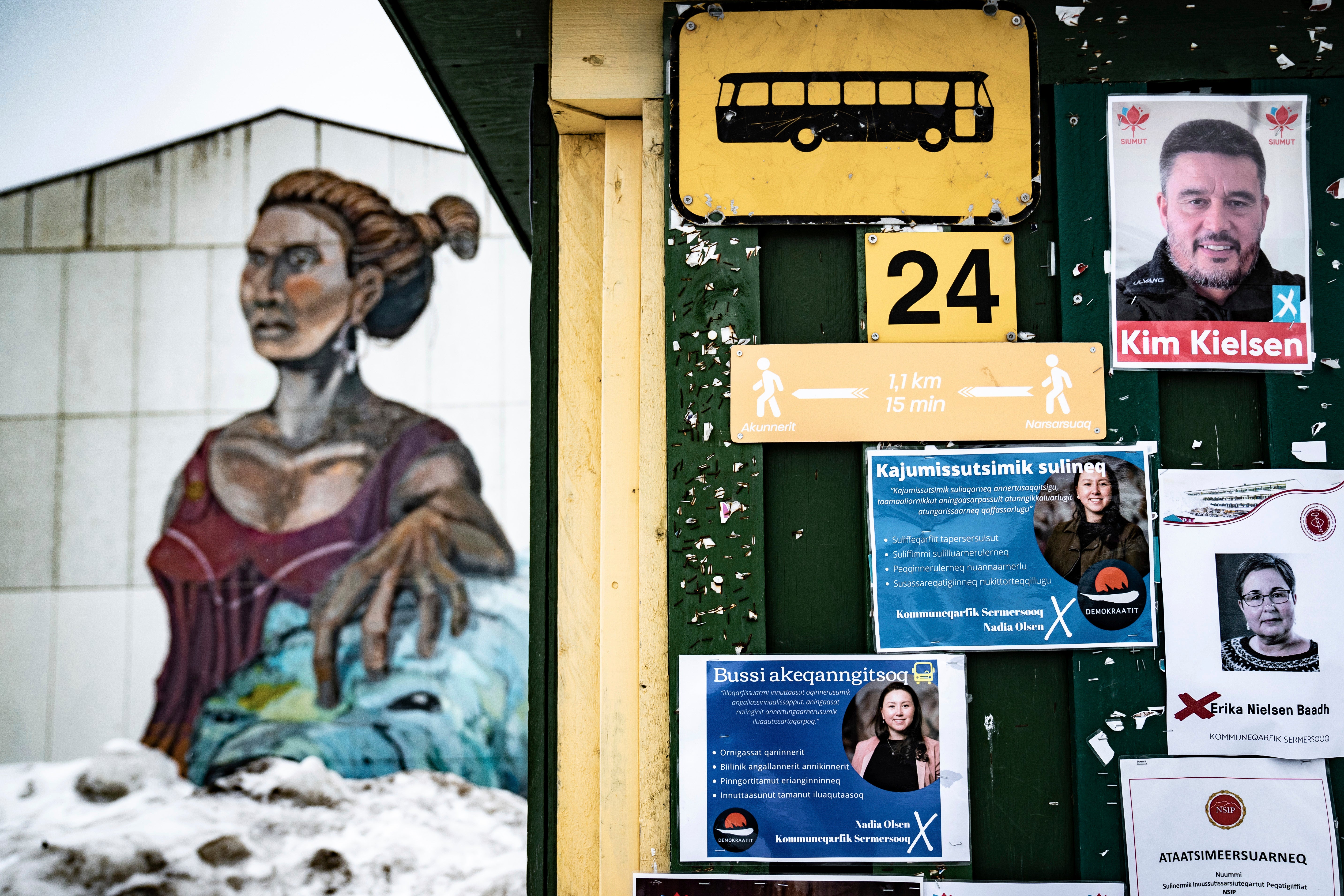Greenland election shows divide over rare-earth metals mine
Greenland is holding an early parliamentary election Tuesday focused in part on whether the semi-autonomous Danish territory should allow international companies to mine the sparsely populated Arctic island’s substantial deposits of rare-earth metals

Your support helps us to tell the story
From reproductive rights to climate change to Big Tech, The Independent is on the ground when the story is developing. Whether it's investigating the financials of Elon Musk's pro-Trump PAC or producing our latest documentary, 'The A Word', which shines a light on the American women fighting for reproductive rights, we know how important it is to parse out the facts from the messaging.
At such a critical moment in US history, we need reporters on the ground. Your donation allows us to keep sending journalists to speak to both sides of the story.
The Independent is trusted by Americans across the entire political spectrum. And unlike many other quality news outlets, we choose not to lock Americans out of our reporting and analysis with paywalls. We believe quality journalism should be available to everyone, paid for by those who can afford it.
Your support makes all the difference.Greenland is holding an early parliamentary election Tuesday focused in part on whether the semi-autonomous Danish territory should allow international companies to mine the sparsely populated Arctic island's substantial deposits of rare-earth metals..
Lawmakers agreed on a snap election after the center-right Democrats pulled out of Greenland's three-party governing coalition in February, leaving the government led by the center-left Forward party with a minority in the national assembly, the 31-seat Inatsisartut.
One of the main reasons the Democrats withdrew was a deep political divide over a proposed mining project involving uranium and rare-earth metals in southern Greenland. Supporters see the in the Kvanefjeld mine project as a potential source of jobs and economic prosperity.
Former Prime Minister Kim Kielsen pushed to give the green light to mine owner Greenland Minerals, an Australia-based company with Chinese ownership, to start operation. Erik Jensen - Kielsen’s recent successor as Forward party leader - is opposed to granting the company a mining license.
Recent election polls showed the left-leaning Community of the People party (Inuit Ataqatigiit), a staunch opponent of the mine project, in position to become the largest party in the Greenlandic Parliament.
The opposition party has stated that a majority of Greenland’s 56,000 inhabitants, most of them indigenous Inuit people, are against the project, largely for environmental reasons.
The mining proposal is relevant beyond Greenland. The largely ice-covered island has the world’s largest undeveloped deposits of rare-earth metals, according to the U.S. Geological Survey.
Estimates show the Kvanefjeld mine could hold the largest deposit of rare-earth metals outside China which currently accounts for more than 90% of global production.
Rare-earth metals are used in a wide array of sectors and products, including smartphones, wind turbines, microchips, batteries for electric cars and weapons systems.
Greenland, the world’s largest island that is not a continent, has its own government and Parliament, and relies on Denmark for defense, foreign and monetary policies.
Voting in Tuesday's election is set to end at 2200 GMT. Initial results are expected on Wednesday.